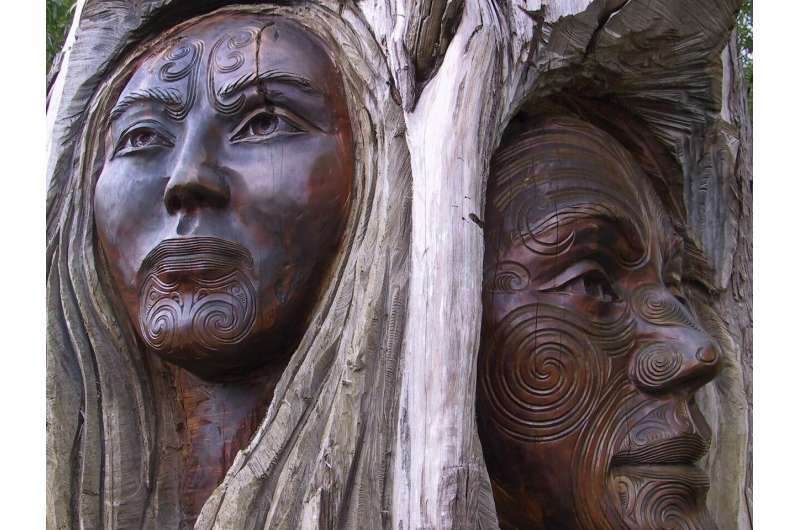Understanding Māori language learners

Before COVID-19, my colleagues Dr. Maureen Muller and Tai Ahu and I conducted research for Te Mātāwai focusing on factors that enable and inhibit Māori from learning and using te reo Māori.
More than 1000 participants responded to our survey, and 57 Māori were interviewed across Aotearoa. From those who had not yet begun learning through to those with conversational proficiency, the main barriers were consistent: feeling whakamā about their language use, not having enough people to speak with, and having limited time and resources.
One of the things ancestral language learners (those with whakapapa Māori learning te reo) commonly express is that, through the process of engaging in te reo Māori, a high level of emotional vulnerability is experienced.
Māori language engagement tends to re-open discussions around why a learner might be in a position where they are needing to formally engage in ancestral language learning, as opposed to learning through intergenerational transmission. Within this process of enquiry, we start to reflect on our own whānau histories of language loss, which are inextricably intertwined with the violent dispossession from our iwi lands, resources, and cultural identities.
Language dispossession directed at Māori was an intentional process of colonization. State-sanctioned child abuse in schools imposed upon Māori children for speaking our language, even when they knew no other, aided the speed of dispossession (see Waitangi Tribunal reports, WAI 11, WAI 262).
Why is it important for us to know about the impacts of colonization on te reo Māori? Partly, because it impacts on indigenous lives.
Indigenous lives are where indigenous languages are derived from. In the process of reclaiming our reo Māori, Māori are often reclaiming other parts of ourselves and our identities, which is why it can take us multiple attempts to even enroll in a course, let alone afford the time away from work or whānau in order to attend courses.
In our study, parents were the most likely group to indicate that managing whānau commitments was a considerable barrier to language acquisition. If we are thinking that te kāinga (the home) is where our language is going to be revitalized, we need to seriously consider how whānau are supported to reclaim te reo Māori.
For many Māori who are pre-language-learners, borrowing from the translated whakataukī "Do the mahi, get the treats," in our current context "doing the mahi" can almost be equated with "the treat."
Having the time, financial resources and emotional availability to attend to pre-empted and/or unanticipated trauma that occurs through the process of formal ancestral language acquisition is a privilege, hence language learning becoming a luxury item for many Māori.
When Māori participants in our study said they don't have time to formally learn te reo Māori, they are not over-stating the matter. The 2018 Census indicates that Māori median incomes (both men and women combined) were $24,300, compared with Pākehā, whose median income was $34,100.
Māori women in particular carry high loads for unpaid labor. Despite this inequality and the lack of disposable income, Māori are proportionately more likely to be engaged in some type of formal education. As indigenous people, we are not only in a process of language revitalisation, we are also dealing with the ongoing structural impacts of colonial harm, which costs us our time.
As a Māori-speaking parent, I want my kids to be able to get a dental check-up and have their dentist explain themselves in Māori, rather than having their parents translate the outside world. I want them to be able to see te reo Māori reflected to them in society, viewing their ancestral language as normal and themselves as normal in doing so.
Shifts towards language normalization require care and attention as to how we achieve this goal. Language classes across Aotearoa have seen increases in student numbers, in particular among Pākehā students.
With the rise in Pākehā participation in Māori language classes, issues of positionality are an important consideration. Being able to learn te reo Māori without having to address colonial trauma or having your language skills equated with your validity as a cultural in-group member is a privilege that Pākehā students do not have to deal with—they can merely dive straight into "the treats."
Normalization of te reo requires more Māori spoken everywhere, which requires te reo Māori to be accessible to all. The challenge for Māori language educators is that in the reclamation of our language and cultural identity, we need to make room for the emotional loads disproportionately carried by our Māori students. This means Māori-centered learning that holds space for the unpacking of traumatic histories.
There are significant inequalities that exist within our own Māori communities about who has access to te reo Māori and who does not, which is why adding Pākehā learners into the conversation is complicated.
The colonial history of Aotearoa and its devastating impacts are part of the reason not all Māori are supportive of Lorde's new album. But that's another conversation.
More information: A study of language motivations to enhance the use and acquisition of te reo Māori. www.tematawai.maori.nz/en/rese … a-u-ki-te-reo-maori/
Provided by Victoria University of Wellington




















